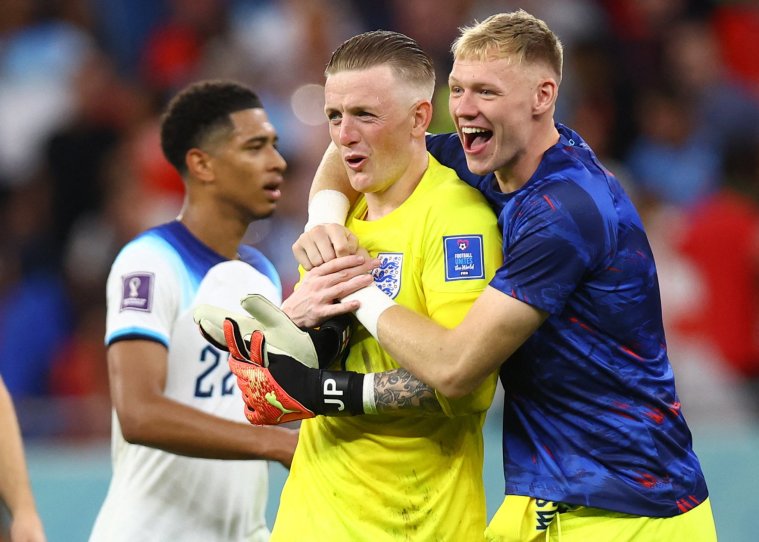DOHA – A “revolution” in goalkeeping has taken place and the World Cup has confirmed that the age of the keeper playmaker is upon us.
A fascinating briefing by Fifa’s technical committee on Wednesday provided the clearest evidence yet that the modern game has evolved to include goalkeepers comfortable with the ball at their feet.
Goalkeepers had received the ball from their outfield teammate 443 times after the first two rounds of group games at the 2018 World Cup. That number has increased to 726 in Qatar as goalkeepers have been quick to adapt their game to the demands of teams that play out from the back.
Data crunched by the technical committee also showed that, so far, the starting position of the goalkeeper is 1 metre higher up the pitch than it was in Russia. That’s because they are more involved in starting attacks and are more comfortable with the ball at their feet.
More from Football
“One metre is huge, it’s a massive increase,” former Switzerland goalkeeper Pascal Zuberbuhler, who is the lead goalkeeper specialist on Fifa’s technical committee, told i. “It means the goalkeepers are asking for the ball and players are happy to play them the ball.”
He cited Danny Ward’s save from Marcus Rashford in the England vs Wales game as proof that goalkeepers are playing higher up.
Zuberbuhler continued: “Goalkeepers are starting the attacks, the build-up and they are playing the ball around more.
“It’s great to see how much the goalkeepers are involved. A goalkeeper today, first they need to be able to play with their left and right foot. (Unai) Simon – the Spanish goalkeeper – is extremely alive during the game. He’s like an outfield player.
“It is a revolution in football – the modern game requires a world-class goalkeeper, this is absolutely clear.
“At the end of the tournament, we will see the winner with one of the best goalkeepers. You’re not able to win a league or tournament without a goalkeeper who is involved in the game.”
Gareth Southgate handed Jordan Pickford his debut in 2017 and has stuck with him throughout sketchy periods of form partly because of his fantastic distribution.
Zuberbuhler says he is “clearly” England’s number one and has managed the expectation attached to that well. He is an “excellent” contender for the Golden Glove prize handed out to the best stopper at the tournament.

“In England, the number one is there to be criticised,” he said.
“In 2018 he played a brilliant tournament with England and afterwards, the expectation from supporters was clearly higher. People look at you differently because you’re number one.
“He’s had his ups and downs but now he’s back. His coach, goalkeeper staff is back for him and it’s crucial. For England, he plays fantastic games. Now he’s in a tournament and he’s performing, along with England.”
Among the other findings of the technical committee – which was briefing reporters after the second full round of games was completed – was that there were fewer players prepared to commit to one on ones and teams were looking to play on the flanks rather than through the middle.
The committee members said they believed the conservative football of the first two rounds would change as the tournament progressed.

